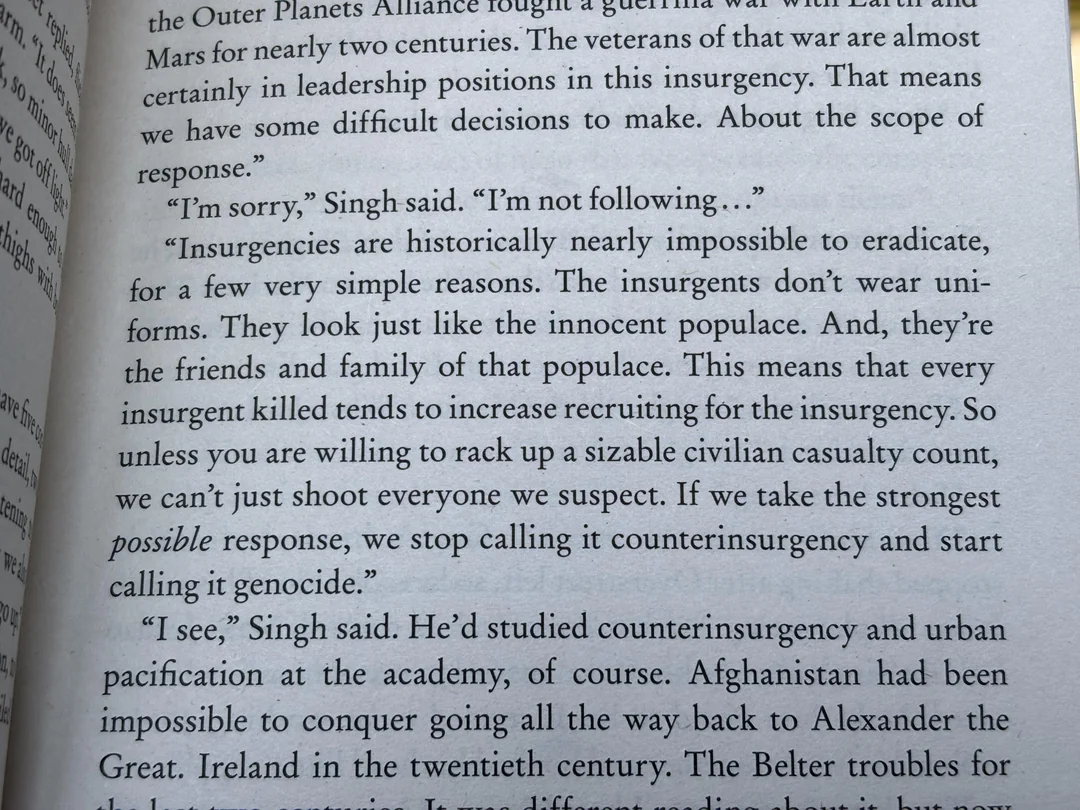This post is part 1 of 2 of a post that appears on the next page.
Amen to all of the above!! Lots of my terminology is coming from a unified understanding of intelligence that is emerging and is discussed at length by Michael Levin on his YouTube channel, and it reconstitutes an intelligent organism as a pattern that self-perpetuates against entropy and is able to solve problems in its own relative spacetime. It challenges traditional anthropocentric understandings of intelligence and allows for a massive, massive number of "things" in the universe to be understood as intelligent systems even if we have no means of interfacing with those systems. A reframing of the hierarchy of "complex life" also allows for larger, intelligent macro "organism" to be named and provided narrative reality, and maybe the most interesting example to my biased human ass is that human cultures themselves become macroorganisms in a sense that perpetuate the thought and understanding of that group of humans against a universe that doesn't ever fully validate their understanding. What is unique is that human culture has become truly globalized within the past few centuries in a way that it never has been before to our knowledge, meaning we are looking at a larger, more complex, more intelligent culture that becomes even harder for individual agential microorganisms in the structure to liaise with. Human beings are analogous to cells whereas the summation of human knowledge and experience and narrative history and art (or chaos interpretation)--what we collectively deem "culture"--is analogous to the larger animal or plant that those cells comprise. However, the complexity of intelligence goes waaaaaaaay beyond what is a fairly surface-level analogy, and I definitely recommend looking up Levin!
I will look up Levin, thank you for the recommendation. For Deleuze and Guattari, they are rather pan psychist. They have what are called the 3 synthesis, the connective, disjunctive, and conjunctive, which are synthesis 1 (connective) the array of partial objects (or, or, or, as in this one or this one, or this one); synthesis 2 (disjunctive) an emergent singularity body without organs, a surface on which events are inscribed, and re-emerge as singularities of meaning where dualities of meaning break down (and, or, as in this one and this one together, or this one, etc); synthesis 3 (conjunctive) which is emergent properties such as consciousness, the and... so (the and... so being where something concludes as a coherent idea)! Not teleological as in a fourth cause of Aristotle, but rather an emergent property of matter such as coherence, and true and false. Deleuze and Guattari do not reject true and false, it's just not the whole picture - there's also good and bad sense as Deleuze describes in Difference and Repetition. So sense is a-signifying, and operates on flows, and produces everything consciousness experiences in the third synthesis, while the body without organs is the surface on which those flows are organized, and the surface of the body without organs is inscribed through the "nos" of capital. The superego cuts flows - when you do things for the big other, the mega-machine, the socius, a shareholder for instance, you are doing it for the temporal flow of profit.
Think Heidegger, Dasein is authentic due to authenticity towards death. But Heidegger has no social critique, he does not take race into account, he does not take capitalism into account. That is the problem with Heidegger, and is why he was able to be in the Nazi party and hide that fact - because his neutrality was a mask which hid the great violence of the nazi party. Not only that, but the mega-machine organizes flows, so there's things which we are not responsible for, because we have not developed the responsibility that anarchism teaches us. Zoe Baker in her book Means and Ends teaches us about the community centers of the Spanish Revolution, of the libertarian communists; the education, physical, mental, and external resources required to build a post-capitalist system. Surplus value, as Deleuze and Guattari say, is the basis of capitalism. Once it begins to be extracted, it begins to work for the mega-machine - it becomes an impersonal mass psychology which operates on primitive accumulation, the continual expansion and extraction of resources and destruction of populations for the profit of the capital and the empire. That is what I mean by the mega-machine, is the flows which are determined inwardly by the inner police officer in the head known as Oedipus, or the superego, that is heteronormativity, and restrictive representational meaning in itself. Microfascisms pertain to technical machines that are what the sign points to, as opposed to what is being said often times. This is when flows are directed towards macro fascism - this could be seen as small acts of discrimination and ignorance.
That all makes sense!! As I stated, there is explicit and pervasive need for both new anarchist theory and for folks to convert that theory into story so that it can be interpreted by human brains as possibility. And you are right that the dichotomy is one that doesn't need to exist so clearly. Fundamentally, in a universe without objective reality, non-fiction is just another filter of narrative!
Objective reality and subjective reality I believe break down in Derrida's notion of differance, which is much like Deleuze and Guattari's notion of a singularity. All the meaning which is supposedly true or false, on some level breaks down because we structure reality through fiction. But Deleuze and Guattari want to stress that words are meaningful, and in fact their positive view of the real, which means a speakable real, if we recall psychoanalyst Jacques Lacan's notion of the real - kind of like Kant's thing in itself, the unspeakable thing which we supposedly know and don't know. This is where the quantum physicists and I'd argue Hegel far before them come in - how does one know something which is supposedly unspeakable? So the idea is we can speak about things, but for Deleuze and Guattari it's to the nth degree, meaning a line that goes up on a chart but never actually reaches the other end, just keeps going up. That's how knowledge works.
So it's important, and necessary to believe in some sort of truth, but there's a difference between relativism that is equal validity and non neutral symmetry relativism; equal validity relativism is for instance "we can't judge nazis" that's equal validity relativism and it's a mask to hide a lack of ethics, and it's contradictory because it's an ethics based on saying we can't have an ethics. I believe in non neutral symmetry, a type of relativism where we can still judge things, as better or worse, that's Deleuze and Guattari's notion of good and bad sense. But at the same time, there is true and false, in the sense that within the structures of thought we build that are fungible, and operate on paradigms as Thomas Kuhn shows in science, the paradigms can be replaced, but need something to replace them because scientists can't do science without something to base their science on. That is where anarchism comes in - the practice, the replacement for capitalism, based on order, and rules, but not rulers.








